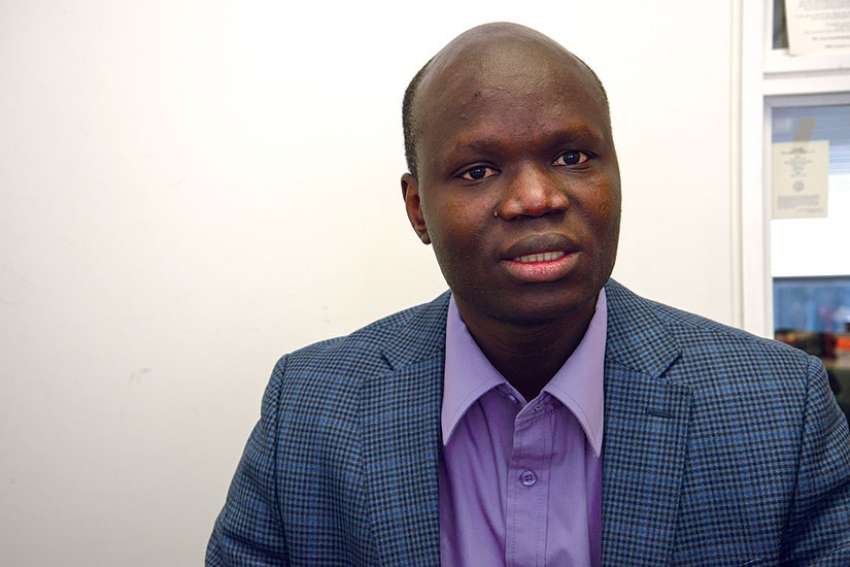Today, as outreach manager for the Office for Refugees, Archdiocese of Toronto, Moro looks back on his disintegrating homeland and worries over his family — dozens of cousins, uncles, aunts, brothers and sisters — who have fled across South Sudan’s southern border into refugee camps in Uganda.
Pope Francis’ proposal to visit South Sudan with Archbishop of Canterbury Justin Welby at some point this year represents a flicker of hope for Moro as he anxiously texts cellphone messages back and forth with his mother and siblings in a refugee camp near Yumbe, about eight hours’ drive north of Kampala, Uganda’s capital.
“By the Pope publicly declaring he would want to consider visiting South Sudan, it’s a sign that maybe his presence there might help to ensure that the warring parties can organize — the people are suffering, that they need to come to the table and dialogue, maybe a national reconciliation process,” said Moro, who has also been working to re-unite with his Ugandan wife and five-month-old daughter who live in Kampala.
“We’re looking at whether it is possible, or if the situation down there is too dangerous,” Pope Francis told Rome’s Anglican community as he visited their church Feb. 26. “But we have to do it because they — the three (Christian communities) — together desire peace and they are working together for peace.”
While many will be anxious about Pope Francis entering a war zone that was further declared a famine zone by the United Nations on Feb. 20, it’s clear the Pope wants to encourage ecumenical efforts to end a confusing and vicious ethnic and civil war tearing apart the world’s youngest country, which was granted independence from Sudan in 2011.
The UN Office for the Co-ordination of Humanitarian Affairs estimates there are 7.5 million South Sudanese who need help and protection. That includes 3.4 million who have fled their homes — 1.9 million internally displaced inside South Sudan and 1.5 million who have crossed borders, mainly into Uganda and the Democratic Republic of Congo.
Starting out in the town of Yei, Moro’s relatives mostly walked the 130 kilometres south to safety. Eventually, some of Moro’s cousins were diverted into eastern Congo — one of the most lawless, war-torn places in Africa — when the Ugandan border closed. But Congo was still a better option than staying put, said Moro.
“The road itself is not safe,” he said. “There are ambushes, gangs, robbers. You just hope that when you move you don’t fall into the wrong hands. People, when they are desperate, they will do whatever. If it means walking even at night, or sending family members in different groups, it can happen.”
Food rations within the refugee camps strung out along Uganda’s northern border are barely sufficient to sustain life, which has left Moro scrambling to get money to his mother and other family members.
“When I was there in December, almost 1,000 people arrived every single day (in Uganda). They were loaded onto trucks and then they were taken to the transit camps to be registered,” said Moro.
South Sudan’s Catholic bishops have been working with other churches to get political leaders to agree to an “Action Plan for Peace.”
But activism for peace has made the Church a target. Sr. Veronika Rackova, a medical doctor, was gunned down by soldiers while driving a clearly-marked ambulance last May. More recently, government forces have shut down Church-affiliated radio programs, closed a Catholic book store and harassed priests and sisters. Churches have been burned.
Moro, whose job is to help parishes get ready to sponsor refugees for resettlement in Canada, now wishes he could resettle his own family.
“People mainly would want to go back home and just live normal lives — have dreams, have their children in school and so on,” he said. “We also know this is not realistic given the current situation.”


